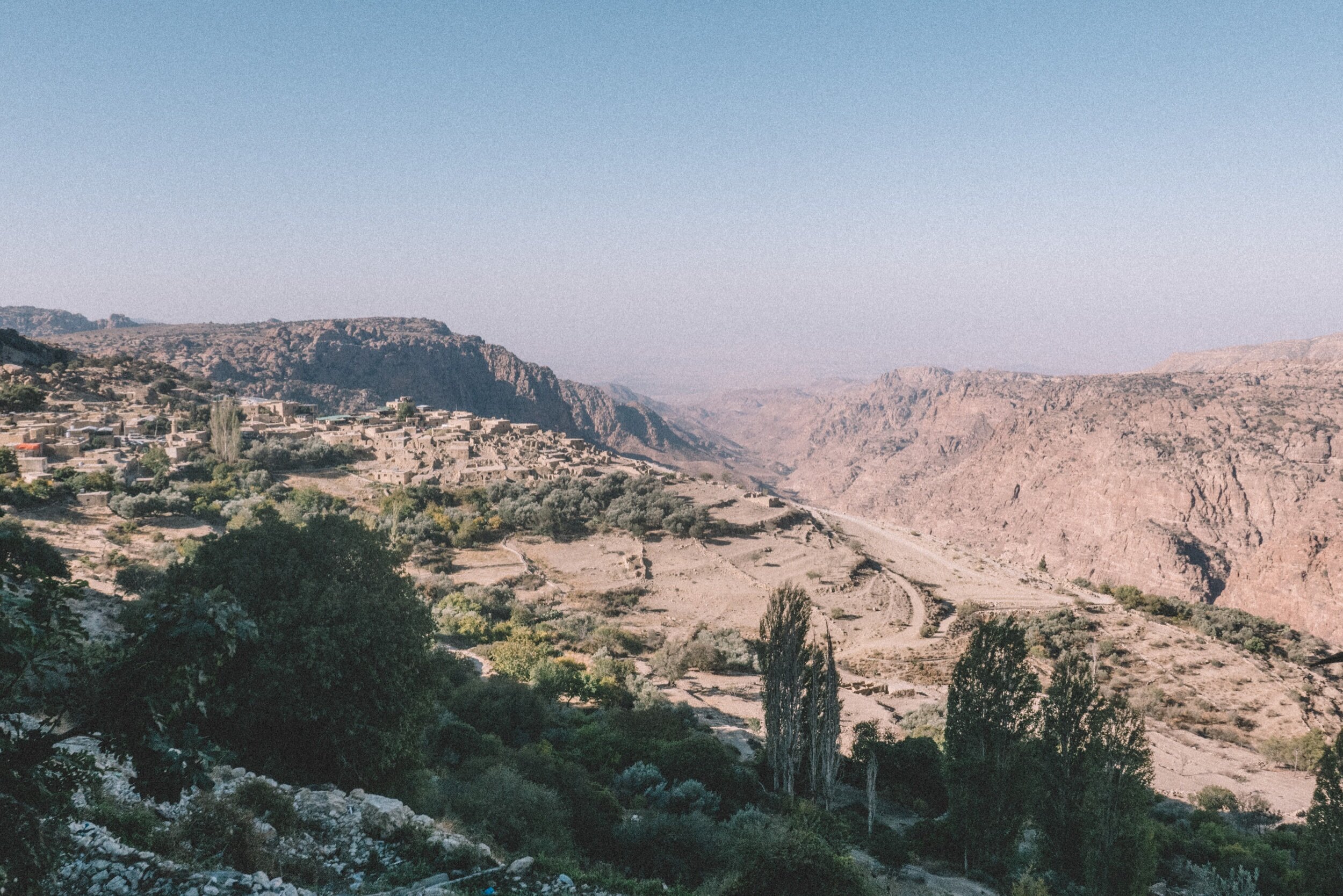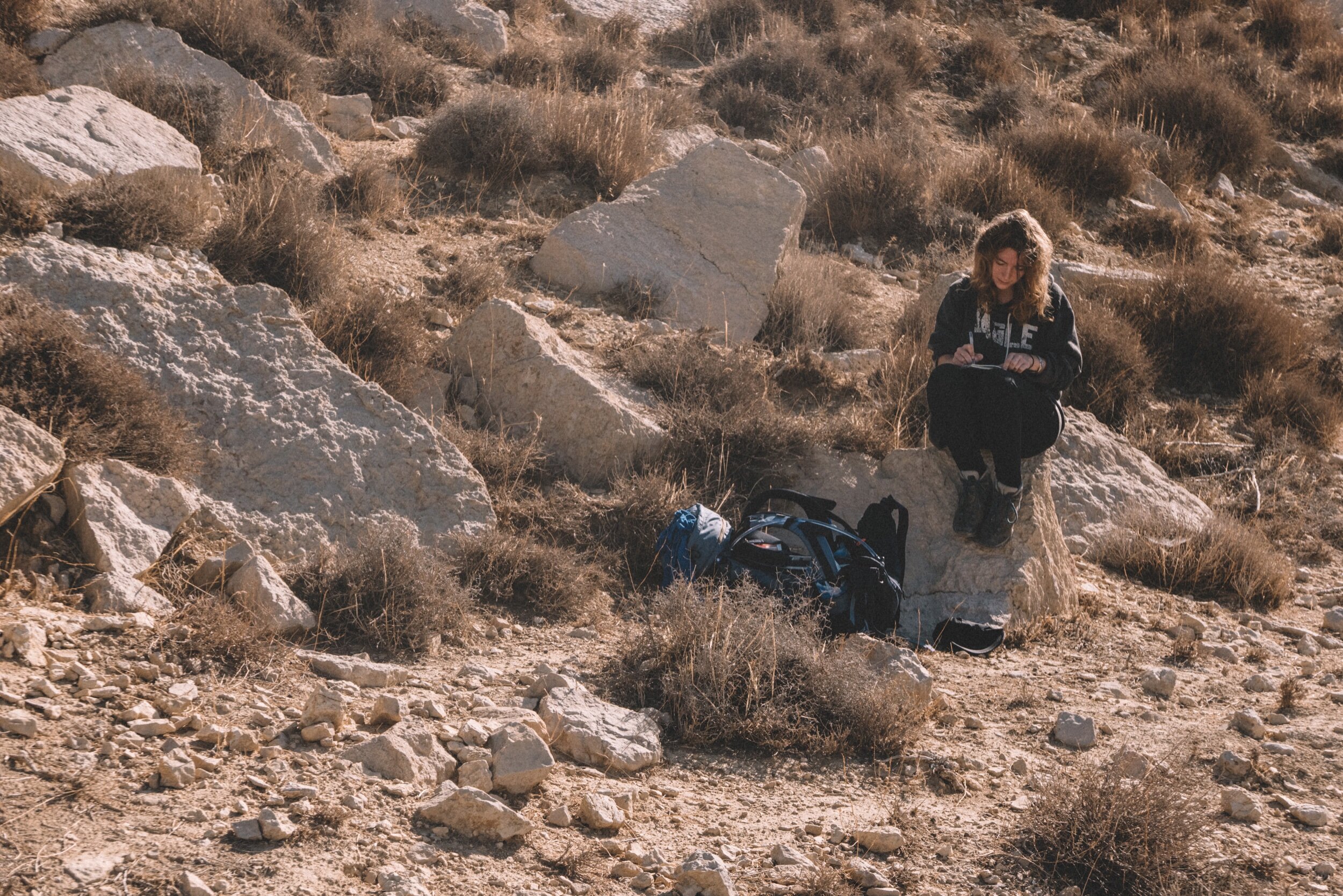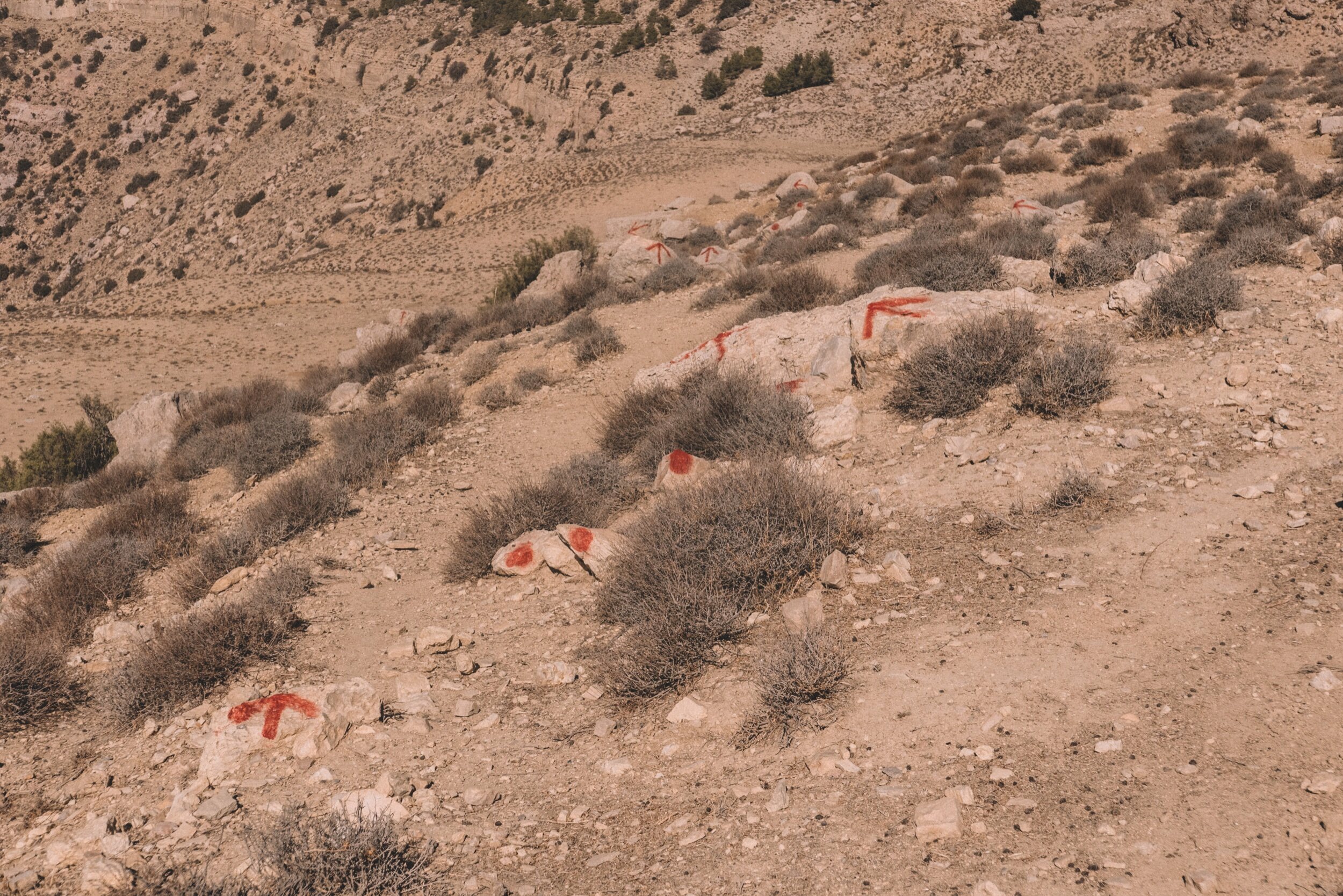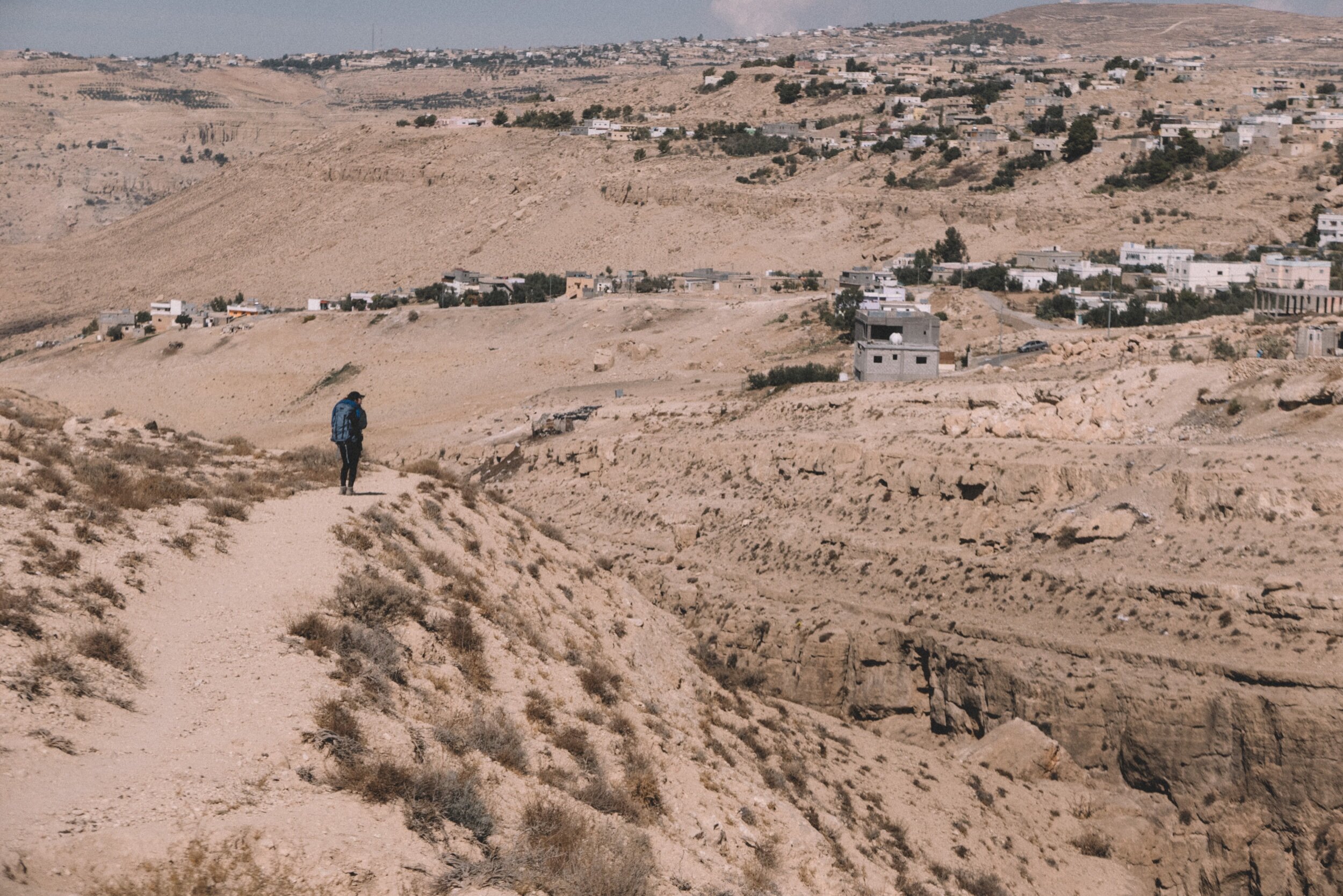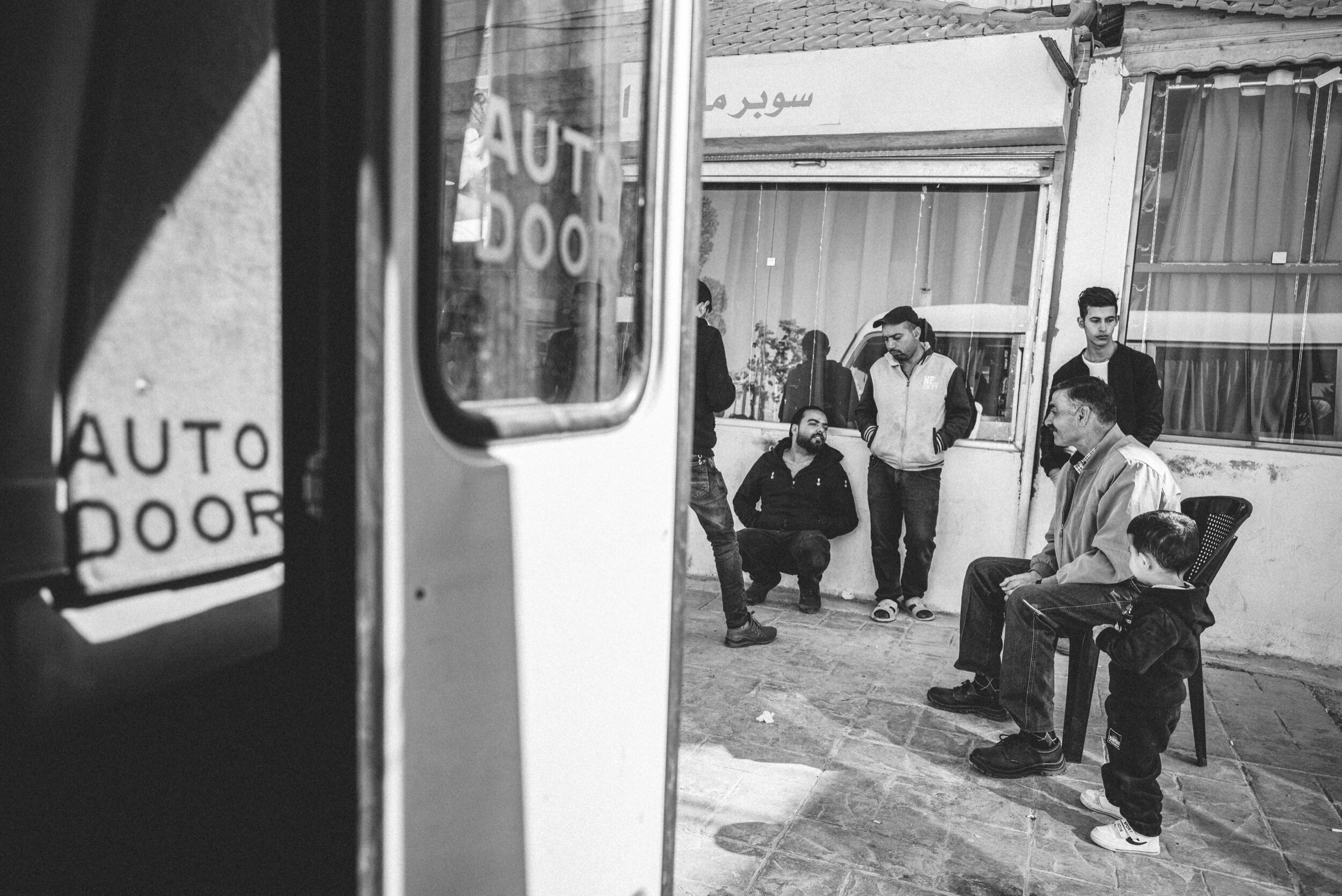Of the thirty days that we spent in Jordan, some fifteen were spent walking on the trail. On other days, we wandered about, clambered, saw the sights. Crossing the country pretty much south to north, a little over three hundred kilometers were done on foot. In that time, we photographed twenty five men named Ibrahim. They were men and youngsters, sometimes boys, going to school, working (some working two jobs, or three), raising kids, building houses or farms or businesses for their families. We met many of them in their homes - ones that they had lived in all their lives, or which they had been forced to recreate elsewhere. We drank lots of tea.
On the trekking stretches - about twenty kilometers each - we’d be greeted once, twice, three times a day by bedouins or villagers: shepherds or those who worked in the olive groves. They would hail us from the across the road or atop a rolling hill and motion for us stompers to come over as we’d pick our way between their sheep. They’d call off the dogs - even the young pups know how to bare their teeth and form a cordon around the herd, but all animals are trained to listen, to a pin dropped off their master’s hat. I didn’t even know there was a way to train a donkey to obey the spoken word. The men made tea and told of their flocks: their dozens of sheep or goats and their dozens of kids, who in turn have kids themselves or are making their way in the world, studying to become doctors. They asked us if we’re married. Depending on the form of the day, or the ways we’d walked, on our mood and the sweetness of the tea, we’d give the easy answer - “yes, no kids”- or pull our index fingers apart and place a hand on each other’s shoulders to say: “Not married, just friends.”
As mentioned, we didn’t hike every kilometer of the route - in part because we were daunted by the prospect and in part because we hadn’t been daunted enough (or really, ‘prepared’). Another reason was the fact that the country’s modest population - Jordan only has some 10 million inhabitants - meant that the trail would be taking us across the most breathtaking landscapes, but also places devoid of interviewees - and we did want to speak to as many people as possible.
The hiking did have a hand in bringing us to spontaneous and unforeseeable meetings. In Jordan, the pedestrian’s way is not the preferred mode of transportation. A sizeable portion of my memories is claimed by entertaining and encouraging encounters that started with a version of the line, “What in the world are you guys doing?”, expressed verbally and non-verbally. We hitched rides, or jumped buses or took new acquaintances up on their offers for a lift. The lengths we travelled in vehicles actually allowed for more chats and understanding, as had been our hope for the project.
During my research I had learned that most people in the literature I know turn to walking as a way to get into their own thinking, and not so much other people’s psyches. My self-reflection on this trip did not get much beyond the point of amazement - at the basic capacities of the human body. Over the distances that we hiked my realization of “what legs can do” grew. But I wouldn’t say that the walking became a meditative experience over those prolonged stretches of time. In fact, I was continuously pushed back into my own body: being alerted to a slowly forming sun-burn, or my hair getting tangled in the soaked-through rim of my cap, or at the possibility that I would lose my footing in the undergrowth. Those were frustrating thoughts.
There were welcome interludes too: color shifting lizards scurrying away over rocks into leaves, beautiful vistas.
I yelled “motherfucker” once, unnecessarily loudly, at a water bottle that slipped from a pouch on the outside of my pack and ruined what would have been a rewarding look-out after some steep bouldering, when I leaned over too far over the last rock I was trying to conquer.

